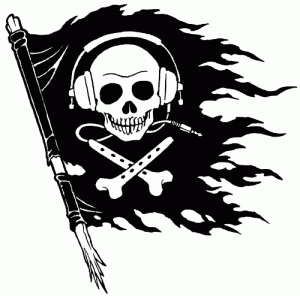As accurately reported by CNET two weeks ago, several major US Web providers have effectively agreed to become the recording industry's personal Internet Stasi. Top ISPs, including Cablevision, Comcast, Time Warner Cable and Verizon will voluntarily collaborate with copyright groups such as the RIAA and MPAA to enforce a graduated response system intended to alert and eventually punish suspected copyright infringers.
Officially called the "Center for Copyright Information" (CCI), the organization is being established jointly by the film, music and television industries along with various ISPs. As part of The Center, ISPs will issue "Copyright Alerts" to notify alleged pirates of their unsavory behavior. Warnings may begin as a formal letter or email to inform accountholders of the unscrupulous activity (this has occurred for years, so it isn't anything new).
Failure to heed those warnings will initiate another tier of alerts as ISPs begin to nag suspected offenders with pop-ups or by redirecting specific pages. If the accountholder refuses to comply, ISPs will progress to a series of "Mitigation Measures," including bandwidth throttling, redirection to a landing page until the subscriber contacts the ISP (it's unclear if this will block access to all sites), or "other necessary measures."
Although this model is similar to France's three-strike system, it's not quite as harsh. France's HADOPI law requires ISPs to give alleged infringers two warnings about their conduct. The third time, they're blacklisted from all Internet providers, fined and face up to two years in prison. American ISPs will issue up to five alerts and the sixth step won't necessarily lead to the termination of your account or any legal repercussions.
"Consumers have a right to know if their broadband account is being used for illegal online content theft, or if their own online activity infringes on copyright rules...so that they can correct that activity," said James Assey, VP of the NTCA, an industry trade group. "We are confident that, once informed that content theft is taking place on their accounts, the great majority of broadband subscribers will take steps to stop it."
The problem with these systems is that you're essentially guilty until proven innocent – and that's increasingly difficult to do if you actually are innocent. At least the old model generally required the recording industry to work through a (sometimes)-neutral legal mediator. Occasionally judges would dismiss requests to access your private data and ISPs were sometimes even reluctant to comply with such subpoenas.
Now ISPs are at the recording industry's disposal and the courts aren't involved. So what happens if you think you've been wrongly accused under the new system? You have to request an independent review, which will be performed by a "qualified, independent entity, separate from the Center for Copyright Information." As lovely as that sounds, the kicker here is that you have to pay a $35 "filing fee" to initiate the review.
Not only will this discourage individuals from contesting infringement accusations, but it will presumably help fund the CCI's operations (the cost of the framework is reportedly being split between the recording industry and ISPs). Naturally, you could always file a lawsuit, but that's a financial and logistical burden the average person simply won't commit to. We don't condone piracy, but this doesn't seem like the answer.
